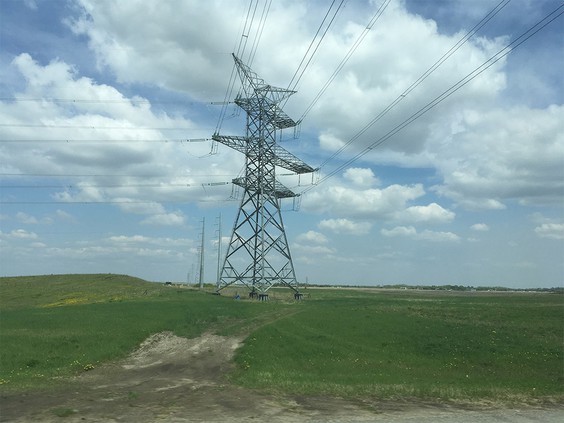Unstable Alberta Electricity Market Forces Sale of Enmax
The cash infusion needed to make the 96-year-old utility a real competitor in Alberta's new power market would be too much of a risk for the southern municipality, Mayor Al Duer said Wednesday.
"The reality of this business is that size does matter and we were a very small player," Duer told Dow Jones. "We either would have to put up substantial equity to grow this venture, or look at ways at finding a player that had that equity."
Independent consultants estimated the city would need to invest C$5 billion into the utility to make it an effective competitor, approximately five times its market capitalization.
Enmax brought in C$87.4 million in quarterly profits the first three months of 2001, compared to C$2.7 million the first quarter of 2000. It has approximately 350,000 retail customers, and controls more than 1,300 megawatts of power through commercial agreements.
The move to sell the utility wasn't surprising to some analysts who pointed out the trend for integrated power companies to split their assets. Utilities like ATCO Ltd. (P.AOS) and TransAlta Ltd. (T.TA) have opted to focus either on lower-risk, regulated units like transmission and distribution, deregulated power generation or retail business.
TransAlta sold its Alberta retail and transmission assets to Utilicorp in 2000, which flipped the residential customers and call centre to Edmonton-owned utility Epcor Utilities Inc. (X.EPU) within a month. Atco announced last month it was selling its retail electricity operation to stay out of the deregulated market.
"To compete, Enmax has to have more flexibility than a city-owned utility," Cambridge Energy Research Associates director Ed Small said. "There's no question that going forward there are risks in the electricity business that are offset by rewards, but it is going to be difficult for an entity the size of Enmax."
The market in Alberta is still unfolding and could hold more volatility into the winter, Small said from Calgary.
Alberta launched its wholesale and retail power market Jan. 1 amid record high natural gas prices, high demand and short supply that lead to rates more than doubling. Since then, additional power has been added to the provincial electricity grid, natural gas prices have dropped and electricity prices have fallen to average C$62 a megawatt hour in June from C$188/MWh in December.
Details on the utility's sale haven't been finalized, but Enmax chief executive Bob Nicolay told local media it could be sold as an initial public offering on the stock market if no buyer steps forward.
Possible candidates include Utilicorp., Canadian Utilities, and Enron Direct Canada Corp., which operates business and industrial power markets. Rival municipal utility Epcor would find it difficult to raise capital for another investment, said one analyst.
City council will hear a full report on the sale at its Sept. 10 meeting.
Related News

The nuclear power dispute driving a wedge between France and Germany
BERLIN - Near the French village of Fessenheim, facing Germany across the Rhine, a nuclear power station stands dormant. The German protesters that once demanded the site’s closure have decamped, and the last watts were produced three years ago.
But disagreements over how the plant from 1977 should be repurposed persist, speaking to a much deeper divide over nuclear power between the two countries on either side of the river’s banks.
German officials have disputed a proposal to turn it into a centre to treat metals exposed to low levels of radioactivity, Fessenheim’s mayor Claude Brender says. “They are not on board…





